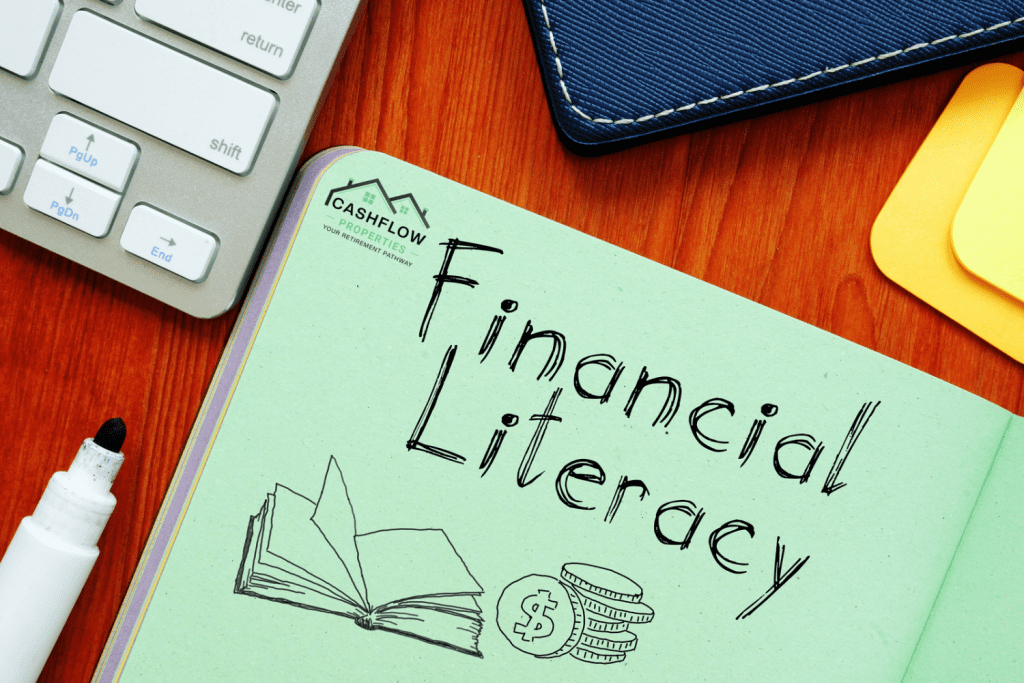
For many Australians, the path to wealth often seems paved with hard work and frugality. We’re taught to save diligently, spend wisely, and aim for that steady 9-to-5 job with superannuation benefits. But what if that well-worn path is no longer enough? With rising living costs, fluctuating markets, and longer life expectancies, relying solely on savings and a single income stream may leave you short of your financial goals. Understanding the fundamentals of money: how it grows, how it’s protected, and how it works for you, is the key that separates smart investors from those just getting by. Financial literacy isn’t a luxury; it’s a necessity, especially if property investment is part of your vision for long-term security.
The Crucial Distinction: Savings vs. Investment
While both savings and investments are integral components of a sound financial plan, they serve distinct purposes.
• Savings: These are funds set aside for short-term goals or emergencies, typically held in low-risk, easily accessible accounts.
• Investments: These involve allocating money into assets like property, stocks, or precious metals with the expectation of generating returns over time.
Relying solely on savings can be detrimental in the long run. Inflation erodes the purchasing power of money; for instance, Australia’s Consumer Price Index (CPI) rose by 2.4% over the twelve months to December 2024 . This means that money kept in a standard savings account may lose value over time if the interest earned doesn’t outpace inflation
Prioritizing Necessities Over Luxuries
Financial literacy empowers individuals to differentiate between essential expenditures and discretionary spending. By focusing on necessities and curbing luxury expenses, individuals can allocate more resources toward investments that appreciate over time.
For example, redirecting funds from non-essential purchases to investments in property or precious metals can yield significant returns. In 2024, Perth, Adelaide, and Brisbane experienced substantial property value increases of 18.74%, 14.64%, and 12.56% respectively . Similarly, gold and silver have historically served as hedges against inflation, preserving wealth during economic downturns.
The Imperative of Strategic Asset Accumulation
Assets like real estate and precious metals not only retain value but often appreciate, offering protection against inflation. Investing in property, for instance, can provide both capital growth and rental income. Data indicates that investor loan commitments in Australiarose by 18.8% in the year to September 2024, highlighting a growing recognition of property as a viable investment avenue .
Moreover, with rental vacancy rates near 1% and limited housing supply, the fundamentals supporting property investments remain strong .
The Retirement Reality: Savings Alone May Not Suffice

Many Australians face the risk of inadequate funds during retirement. Market volatility has significantly impacted superannuation savings; for example, some near-retirees experienced losses of up to 20% in their high-growth investment funds . Such fluctuations underscore the importance of diversifying income streams beyond traditional savings.
While Australia’s superannuation system is robust—projected to become the second-largest globally by the early 2030s —individuals must proactively manage and supplement their retirement plans to ensure financial stability.
The Advantage of Financially Literate Investors
Financially literate individuals are better equipped to make informed decisions, leveraging opportunities and mitigating risks. They understand the importance of early investment, diversification, and continuous learning.
For instance, the emergence of ‘rentvestors’, the individuals who rent their primary residence while investing in rental properties, demonstrates innovative strategies employed by savvy investors to enter the property market and build wealth .
Beyond the 9 to 5: Achieving Financial Freedom
Relying solely on a traditional 9 to 5 job may not lead to financial independence. Inflation, market volatility, and unforeseen expenses can erode earnings and savings. Therefore, cultivating financial literacy is paramount.
By understanding financial principles, individuals can create multiple income streams, invest wisely, and plan for long-term goals. This proactive approach enables them to navigate economic uncertainties and work towards financial freedom.
Wrapping It Up
Financial freedom doesn’t happen by chance—it’s built on knowledge, discipline, and strategic decision-making. Mastering the difference between saving and investing, spending and overspending, working and wealth-building allows you to take control of your financial future. The Australian property market, with its proven long-term value and stability, presents a powerful opportunity for those who are financially literate and forward-thinking. So, whether you’re just starting out or looking to grow your portfolio, investing in your financial education may be the smartest investment of all.
